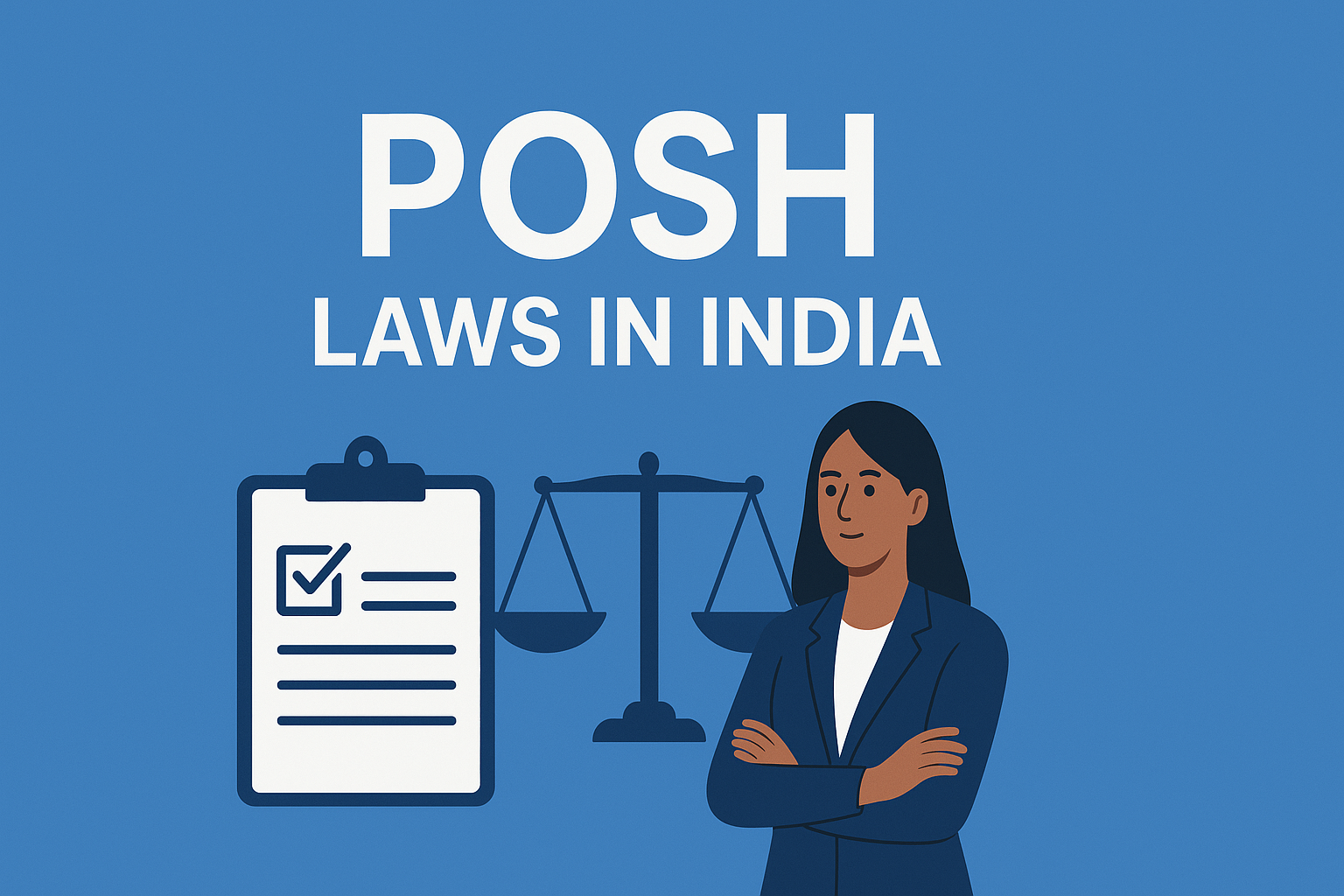Posh laws in India play a critical role in creating a safe and respectful work environment for women. These laws protect women from sexual harassment in workplaces and ensure strict compliance by employers. The need for robust protection has become more important due to the growing participation of women in the Indian workforce. This guide explains the legal framework, employer responsibilities, complaint procedures and key compliance requirements in India.
What are Posh Laws in India
Posh laws in India refer to the Sexual Harassment of Women at Workplace Prevention Prohibition and Redressal Act 2013. It aims to safeguard women from any form of sexual harassment including inappropriate physical contact, verbal remarks, digital misconduct and behaviour that creates an unsafe environment.
Scope and Coverage of the POSH Act
The Act covers all workplaces including:
- Public and private offices
- Government institutions
- Hospitals and clinics
- Schools and universities
- Retail shops and commercial spaces
- Work from home environments
- Off-site business locations
It applies to women who are employed full time, part time, contractual, interns or volunteers.
Key Principles under POSH Rules and Regulations in India
Posh Rules and Regulations in India are based on these pillars.
- Prevention
- Prohibition
- Redressal
- Inclusiveness
- Accountability
Employers must ensure equal protection and prompt resolution.
Forms of Sexual Harassment Recognised by Law
The POSH Act identifies various forms such as:
- Unwelcome touching
- Sexually suggestive gestures
- Demands for sexual favours
- Verbal comments
- Online harassment
- Circulation of obscene content
Harassment can be physical or non-physical.
Employer Responsibilities under Posh Compliances in India
1. Workplace Policy
Display a clear policy outlining examples of harassment and complaint procedure.
2. Internal Complaints Committee
ICC must be established if the organisation has ten or more employees.
3. Awareness and Sensitisation Training
Employers must organise awareness programmes for employees, including Posh Awareness Training for Employees
4. Protection of Identity
Confidentiality during the inquiry stage is mandatory.
5. Annual Filing
Employers must submit returns each year to local authorities listing complaint statistics, often termed Posh Annual Reports
Failure to adopt these measures may result in penalties and business restrictions.How to File a POSH Complaint in India
Steps to file a complaint include:
- Complaint submitted in writing within three months of the incident
- ICC initiates inquiry and collects evidence
- Parties are heard fairly
- ICC issues written recommendations
- Employer must implement action
Women can request transfer or leave support during inquiry.
Rights of the Complainant
Women are entitled to:
- Confidential proceedings
- Non retaliation and protection from victimisation
- Option of rehabilitation support
- Transparent resolution
- Respectful treatment throughout the process
Penalties for Non-Compliance
The law imposes consequences for failing to comply including:
- Monetary fines
- Higher penalties for repeat offenders
- Cancellation of licences
Legal risks and reputational loss are significant concerns.
Government and Regulatory Support
Support includes legal awareness programmes, policy templates and grievance redressal tools. Many workplaces conduct structured learning sessions known as Anti-Harassment Training for Employees to meet legal expectations and ensure employees understand their rights and responsibilities.
Legal Framework Related to Posh Laws in India
The POSH Act is reinforced by constitutional provisions:
- Article 14: Right to equality
- Article 15: Prohibition of discrimination
- Article 21: Right to life and dignity
Judicial precedents including the Vishaka Guidelines shaped the foundation of the Act.
Role of Workplace Culture and Prevention
Cultural improvement is essential to long term safety. Employers should:
- Encourage trust and respect
- Support open communication
- Promote mutual accountability
- Review organisational behaviour policies frequently
A safe workplace increases productivity and retention of talent.
Future of POSH Laws in India in 2025
Emerging areas of focus include:
- Virtual work harassment
- Gig worker safety
- Strengthening ICC training
- Digital grievance reporting technology
- Advanced employer accountability
Organisations must align with evolving compliance requirements.
Conclusion
Posh laws in India ensure women feel secure and respected in workplaces. Employers must take proactive steps for compliance with proper implementation of ICC, training programmes and fairness in complaint procedures. A workplace culture based on dignity and equality supports long term success for businesses and employees.






